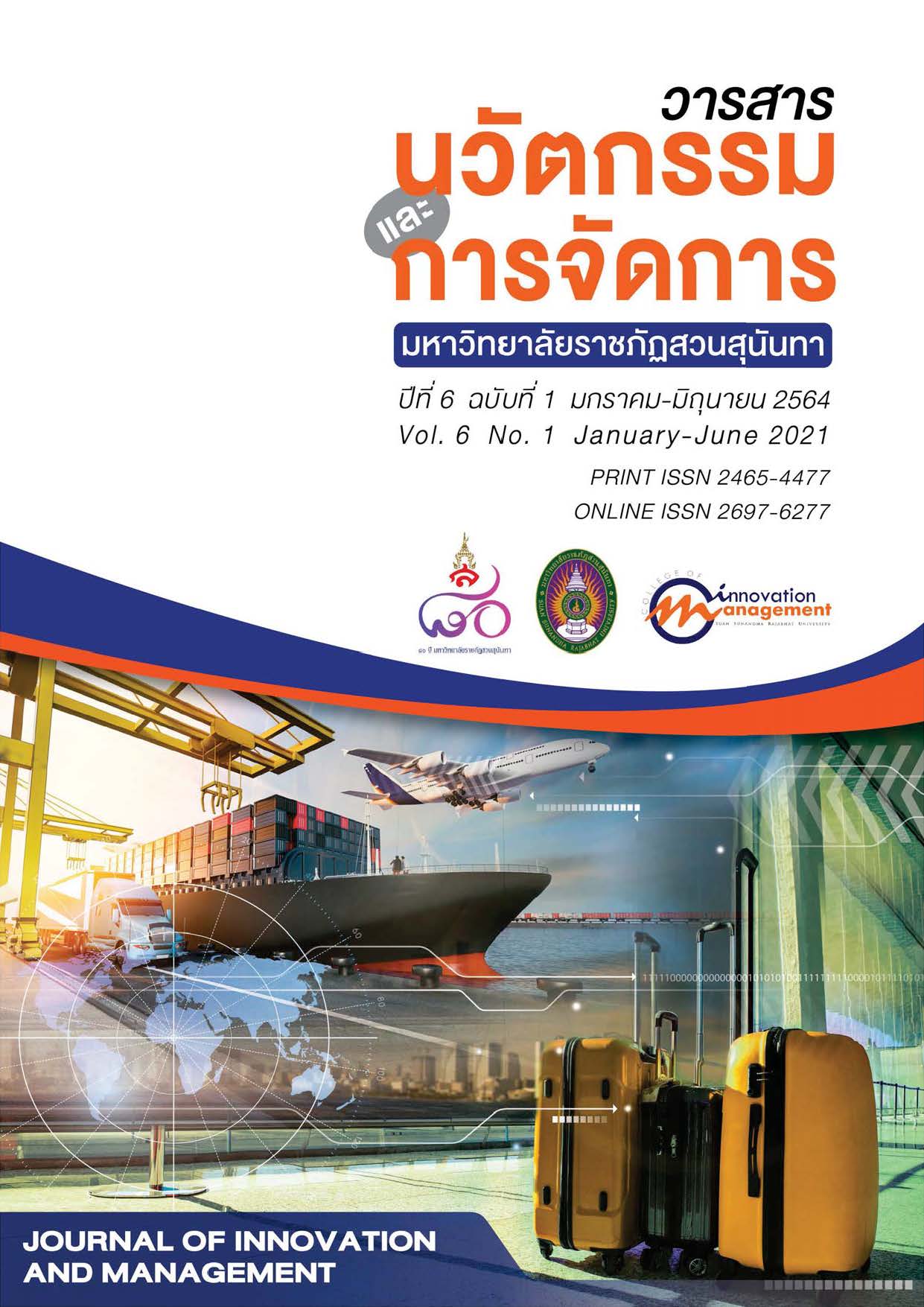Factors Affecting the Acceptance of the DLT GPS Application for Buses of Mongkolchai Transport Company Limited
Keywords:
Technology acceptance, Application, DLT GPS, BusAbstract
The two objectives of this research study were to (1) contrast individual degrees of acceptance of the DLT GPS application, which were sorted by the demographic characteristics and (2) study the technological factors that affect the implementation of the application. The quantitative research design was appled. The participants of the study were selected by the systematic sampling, including 400 passengers of type-four buses in Samut Sakhon. Questionnaire was used as the research instrument. The data were collected and subsequently analyzed by means of (a) descriptive statistics: frequency, percentage, average, and standard deviation and (b) inferential statistics: ANOVA and multiple regression analysis. The research findings revealed that (1) Regarding the demographic characteristics of the participants (gender, age, education, monthly income, and current profession), it has been unfolded that the participating passengers of the type-four buses with different monthly income as well as professions were seen of different degrees in accepting the DLT GPS application, which is at a level of .05. For the other factors besides such a group, the difference was not found, and (2) Focusing on the technological factors, it has reported 50.4% of possibility. Relying on the test of independent and dependent variables, it has been found that (a) perceived ease of use, (b) behavioral intention to use, and (c) attitude toward using could affect the individuals to accept the DLT GPS application, significantly at a statistical level of .05.
References
Chaweesuk, S. and Wong Chaturaphat, S. (2015). Theory of acceptance and use of technology. KMITL Information Technology Journal, 1(1), 1-21.
Chuan Khunthot, B., Srianurakwong, S. and Visetprapa, P. (2017). Technology Acceptance and E-Service Quality Affect to Costumers Satisfaction of Viabus Application in Pathum Thani Province. Independent Study of the Degree of Master of Business Administration. Bangkok: Ramkhamhaeng University. (in Thai)
Cochran, W.G. (1977). Sampling Techniques. 3d ed. New York: John Wiley and Sons.
Davis, F. (1989). Perceived usefulness: Perceived ease of use, and end user acceptance of information technology. MIS Quarterly, 13(3), 318-339.
Department of Land Transport. (2017). Project for confidence throughout Thailand. Used cars GPA. Retrieved 3 March 2020 from https://publicadministration.un.org/unpsa /Portals/0/UNPSA_ Submitted_Docs/2018/4BFEF3BC-210D-466D-90EF-9EA650E0DFC2/DLT%20GPS%20 Tracking%20Initiative%20-%202018.pdf?ver=1439-06 -10-021007-667
Ekkaphachaisawat, T. (2008). Population study. Retrieved 1 June 2020 from http://computer.pcru.ac.th/emoodledata /19/Bundit
Kiatipong, N. (2015). A study of consumer car usage decision behavior. Independent Study of the Degree of Master of Science in Marketing Management. Bangkok: Thammasat University. (in Thai)
Muensrichai, S. (2012). Factors Affecting Accounting User Acceptance of ERP Software. Accounting Professions Journal, 8(22), 38-51.
Panyawai, P. and Supawan, R. (2016). The technology acceptance and country of origin related factors affecting the attitudes towards cosmetic online pre-orders of consumers in Bangkok. Journal of Innovation and Management Suan Sunandha Rajabhat University, 1, 31-39. (in Thai)
Phusakeaw, S. (2017). Factors Effecting to Decision Making to Accept Technology to Use Grab of Customers in Bangkok. Independent Study of the Degree of Master of Business Administration. Bangkok: Bangkok University. (in Thai)
Sektaweelap, P. (2014). Factors affecting behavioral intentions to use cloud storage at Software-as-a-Service (SaaS) level of private organization officers in Central Business District (CBD) of Bangkok. Independent Study of the Degree of Master of Business Administration. Bangkok: Bangkok University. (in Thai)
Vanichbancha, K. (2018). Statistics for research. 12th ed. Bangkok: Sam Lada.
Downloads
Published
How to Cite
Issue
Section
License
Copyright (c) 2021 Journal of Innovation and Management

This work is licensed under a Creative Commons Attribution-NonCommercial-NoDerivatives 4.0 International License.
See Publication Ethics https://so03.tci-thaijo.org/index.php/journalcim/Ethics






